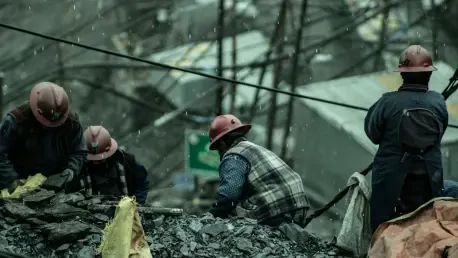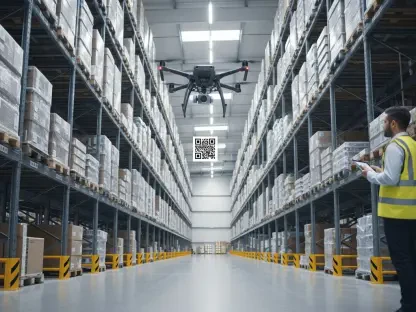The United Kingdom’s quest to transition toward a net-zero, low-carbon economy is intensifying its reliance on critical minerals, which are pivotal for technologies like wind turbines, solar panels, and electric vehicles. This burgeoning dependence exposes the UK to significant geopolitical vulnerabilities, as the nation primarily imports these minerals from countries such as China and Russia. The intricate balancing act hinges on developing robust domestic recycling capacities to safeguard against supply chain disruptions. However, the recycling of critical minerals is fraught with challenges, marked by intensive processes and inherent risks. This complexity underscores the indispensable role of the insurance industry in providing essential coverage, which, so far, it has struggled to accommodate effectively.
The Crucial Role of Critical Mineral Recycling
Balancing Risks and Benefits in Critical Mineral Recycling
Critical mineral recycling is essential for ensuring a sustainable supply chain for the UK’s renewable energy sector, bridging the gap between dependence on foreign imports and self-reliance. The processes involved are not only intensive but laden with risks, ranging from operational hazards to financial uncertainties. This industry aims to reclaim vital elements such as lithium, cobalt, nickel, and others, widely used in batteries, electronics, and energy infrastructure. Proper recycling reduces reliance on international suppliers and mitigates environmental impacts, thereby fostering a greener economy. The challenge lies in the capital-intensive nature of recycling projects, which require significant investment in technology and equipment, often translating to high insurance premiums.
Geopolitical Risks Amplifying the Need for Robust Infrastructure
The geopolitical landscape associated with critical mineral sourcing heightens the urgency for reliable recycling pathways. With the UK predominantly sourcing minerals from politically sensitive regions, potential disruptions loom large. Events like trade conflicts or diplomatic tensions could severely affect supply chains, underscoring the need for a strategic pivot toward local solutions. Recycling, therefore, emerges not merely as an ecological priority but a national security imperative. However, recycling facilities face hurdles, including regulatory challenges and technological demands. Efficient recycling infrastructures can alleviate these pressures, ensuring resilience against geopolitical shocks as part of a well-orchestrated economic and environmental strategy.
Insurance Industry’s Struggle and Need for Adaptation
Limited Coverage in Emerging Technology Underwriting
As the recycling sector grapples with inherent risks, the insurance industry finds itself at a critical impasse, struggling to offer adequate coverage for such unpredictable environments. Insurers, traditionally cautious entities, exude wariness in underwriting emerging technologies like recycling processes. While the government encourages advancements like carbon capture and storage (CCS), insurers often lack the expertise and enthusiasm necessary for confident underwriting. The hesitance stems from insufficient knowledge of the nuanced risks these technologies present, resulting in limited market offerings and stifling the sector’s growth. Without insurance backing, recycling operations face financing obstacles, further stalling the UK’s recycling infrastructure development.
The Path Forward: Embracing Technological Changes
To unlock the full potential of the recycling sector, the insurance industry must evolve, cultivating a profound understanding of emerging technologies and their associated risks. Building specialized teams with in-house expertise dedicated to the recycling domain could bridge the existing knowledge gap. This strategy involves not just thorough risk assessment but also flexible underwriting practices tailored to accommodate pioneering technologies. Insurers adopting proactive measures stand to facilitate the UK’s transition to a sustainable economy, securing a position within renewable industries. By contrasting the stagnant approaches with pioneering initiatives like Aspect Insurance, stakeholders witness firsthand how a traditional industry can evolve to meet modern demands.
The Future of Insurance in UK’s Recycling Sector
Bridging the Gap: Innovative Solutions for Resilience
The next steps for the insurance industry entail a strategic realignment to support the UK’s recycling ambitions effectively. Insurers can leverage technological advances to refine risk assessment methodologies, enhancing predictability where it is currently lacking. Collaborations with technology developers and recycling enterprises could yield insights into crafting bespoke solutions. For successful integration, collaboration across sectors is invaluable. This journey toward a modernized insurance offering that aligns with recycling objectives illuminates pathways to resilience. These actions should be coupled with educational initiatives, raising awareness about the importance and potential of these modifications for achieving a secure environmental future.
Conclusion: Paving the Path to a Sustainable Future
Recycling critical minerals is vital for maintaining a sustainable supply chain within the UK’s renewable energy sector. It helps transition the country from relying heavily on foreign imports to becoming more self-sufficient. The recycling processes are complex and come with various risks, including operational and financial challenges. The industry is focused on recovering crucial minerals like lithium, cobalt, and nickel, which are essential for batteries, electronics, and energy infrastructure. By effectively recycling these elements, the UK can reduce its dependency on international resources and lessen environmental impacts, contributing to a more sustainable economy. However, recycling efforts face significant challenges, particularly due to the capital-intensive nature of projects. They demand substantial investments in advanced technology and equipment, which consequently leads to high insurance costs. This financial hurdle adds another layer of complexity to the already demanding task of creating a green and self-reliant energy sector.









